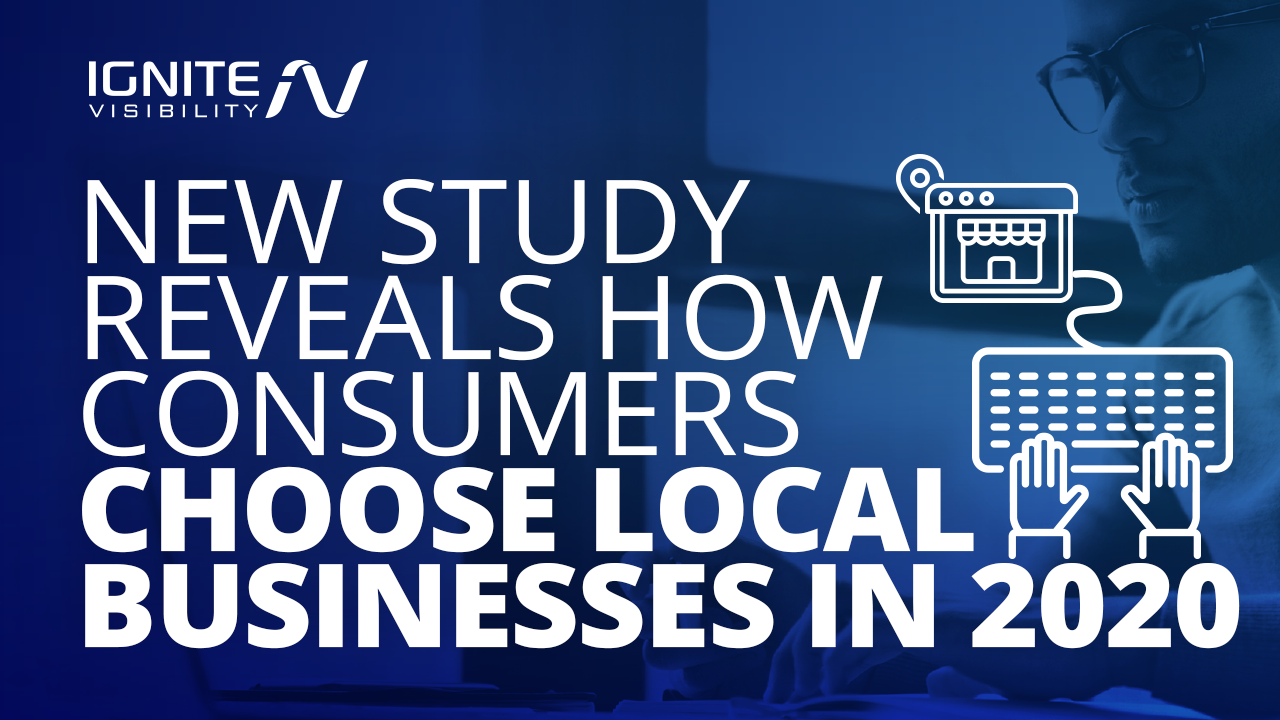We asked 500+ local searchers what they look for online. Here’s what we found out.
In this industry study, Ignite Visibility surveyed over 500 internet users to gain insight into how they’re searching for local business, and what factors have the biggest impact on their decision to visit a local store.

Key Takeaways:
- Only 6% of people prefer voice search
- 75% of people don’t look at a local businesses Facebook
- 73% of people said they don’t want to message through Google My Business
- 81.3% of people don’t leave online reviews
- 87% of people don’t read Glassdoor when considering a local business
- 81% of people say the business description is the most important deciding factor in Google My Business, outside of reviews
- 71% of people look at more than 1 review site before choosing a business
- 58% of people say a negative review will stop them from calling a local business
- 70.3% of people will drive more than 10 miles to visit a business
- 61% of people prefer to call a business over any other kind of communication
Findings:
Of those surveyed, the majority (59%) reported that typing into a computer was their favorite way to search for a local business, followed by 17.9% who preferred to type a search into their phone. Voice search by phone or computer were the least popular options, with 6% and 4% preferring it, respectively.
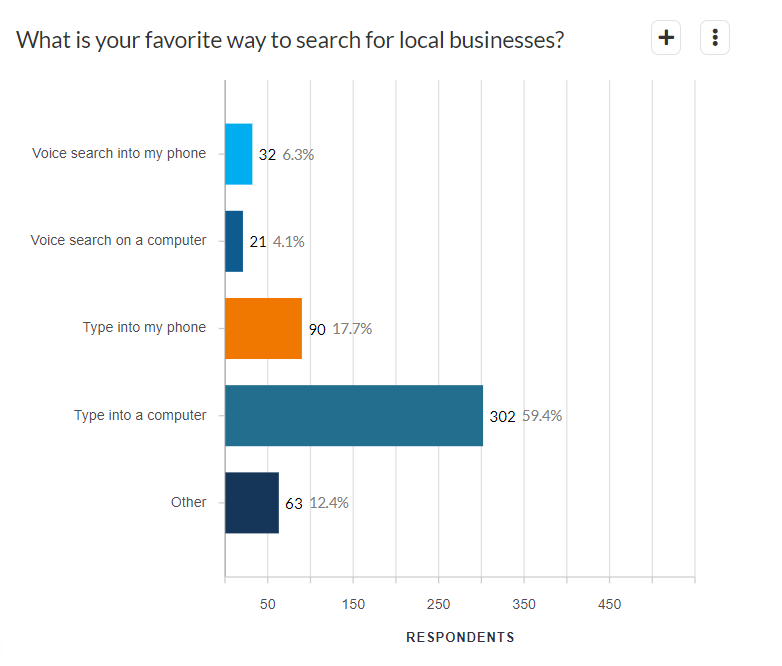
When asked which search engine they’re most likely to use, the majority (69.9%) reported that Google was their favorite way to search for a local business, followed by Yahoo (10.6%) and Bing (4.5). 10% selected “Other” as the search engine most likely to use.
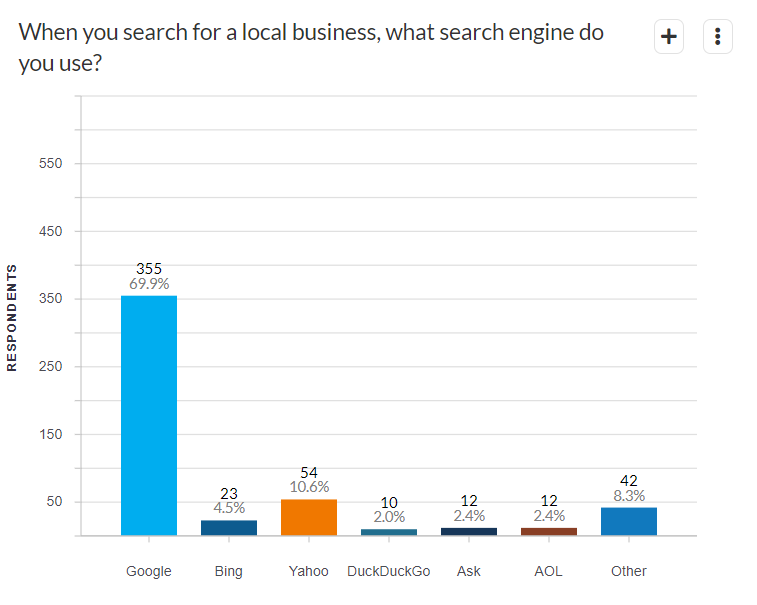
White Pages was the app or website most trust the most when reviewing local businesses, followed closely by Yahoo Local, Angie’s List, and Yelp.
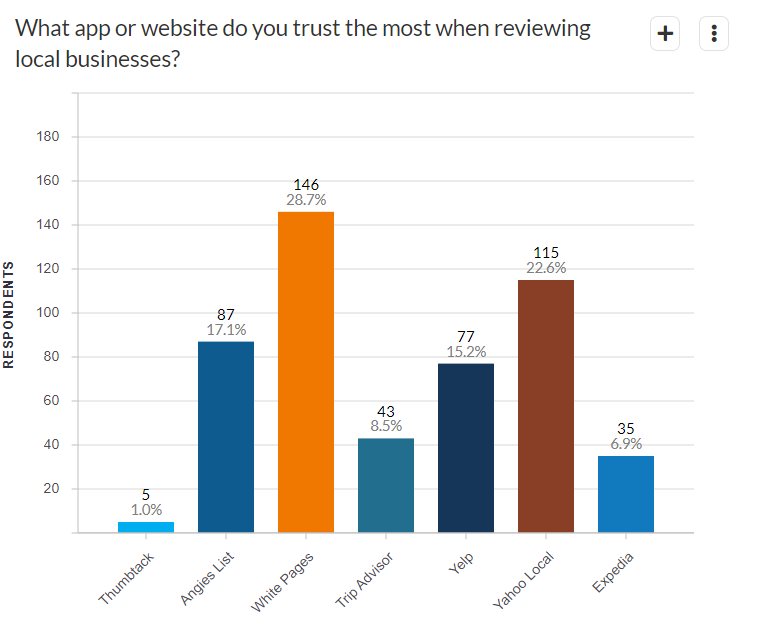
An overwhelming majority reported that they did not leave reviews online (81.3%). Of those that did, most left reviews on Google My Business (7.5%), followed by TripAdvisor (5.5%), and Yelp (4.5%)
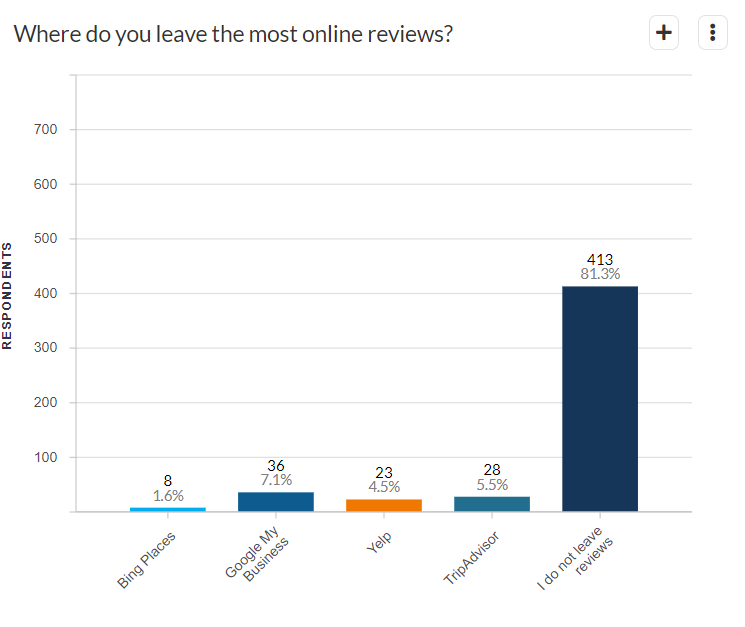
Most reported that they would trust a major review site over an industry or niche site when looking at a local business.
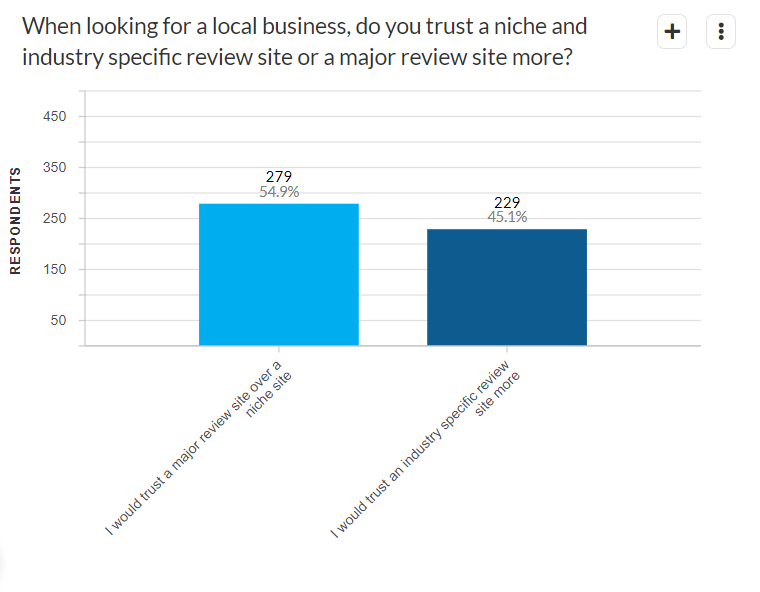
The vast majority (87%) do not read Glassdoor reviews before purchasing from a local business.
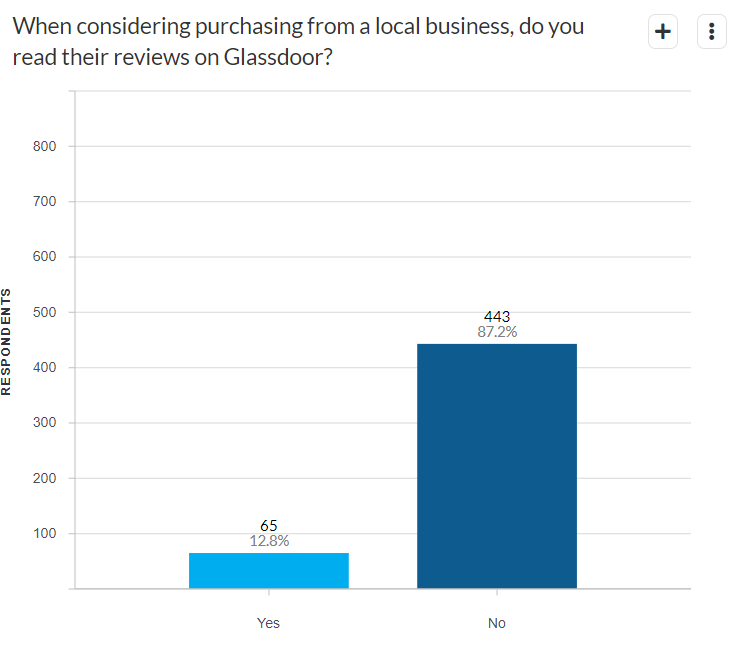
81.3% responded that outside of reviews, the most important element on a brand’s Google My Business is a good business description, followed by quality photos (11.8%) and quality videos (6.9%).
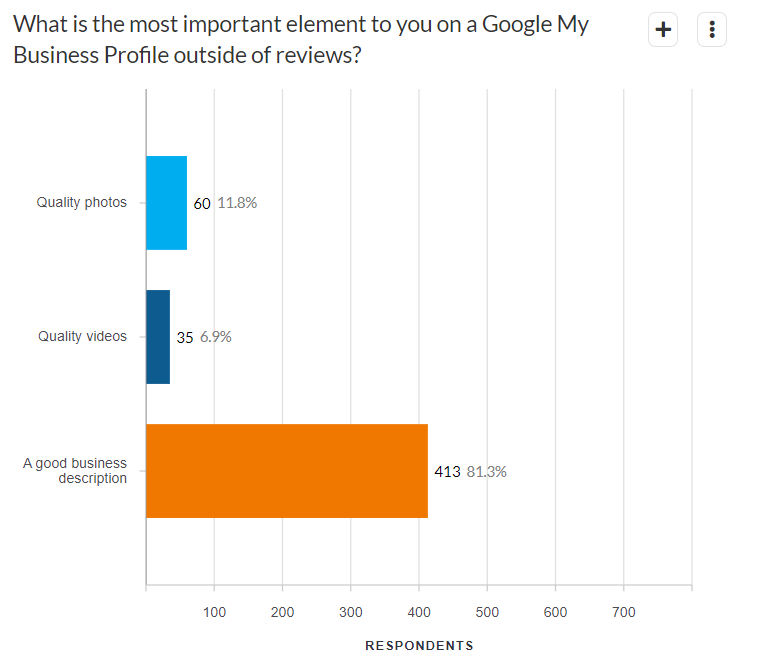
Most responded that they look at just 1 (28.9%) or 3 (27.8%) reviews before selecting a business. 16.9% look at 2, 11% look at 3, and 9.1% look at 6 or more.
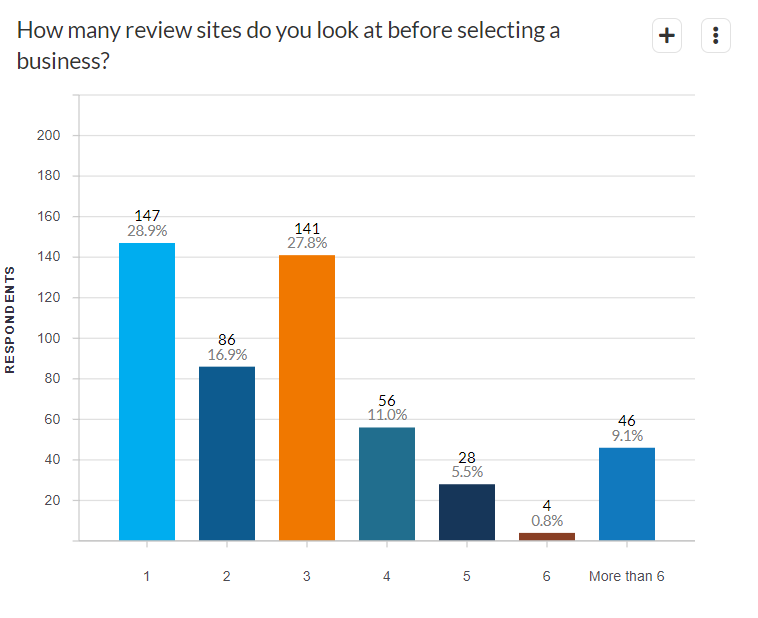
Most (28.9%) spend less than 30 minutes researching a local business before they call, followed closely by those who spend 30 minutes – 1 hour (26.6%). 20% spend 1-5 hours reviewing, and 7% spend more than 5 hours. Surprisingly, 17.1% responded that spent no time reviewing; they simply performed one search and called.
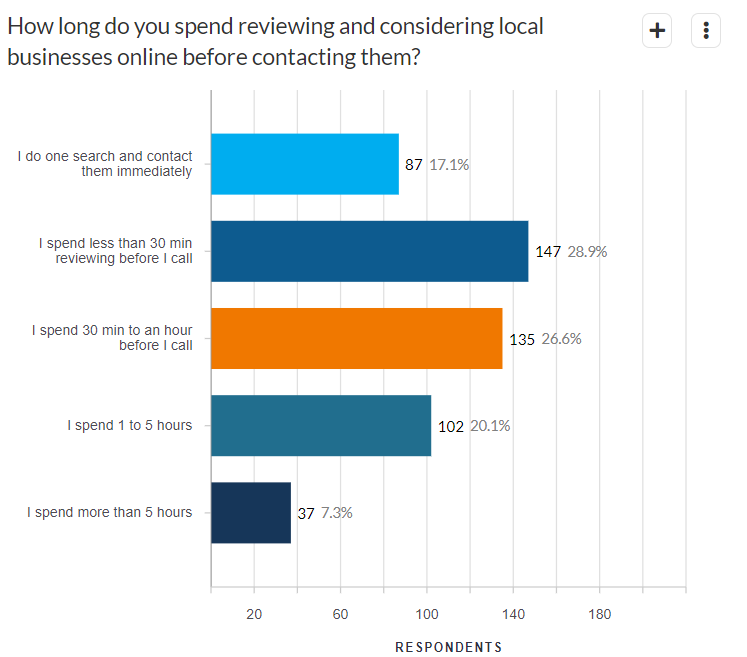
58.1% reported that a negative review is most likely to stop them from calling a local business, while 26% claimed a poor quality website or webpage was the deciding factor. 12% would not call a business due to a slow website, and 4% would not call due to poor quality photos on Google My Business.
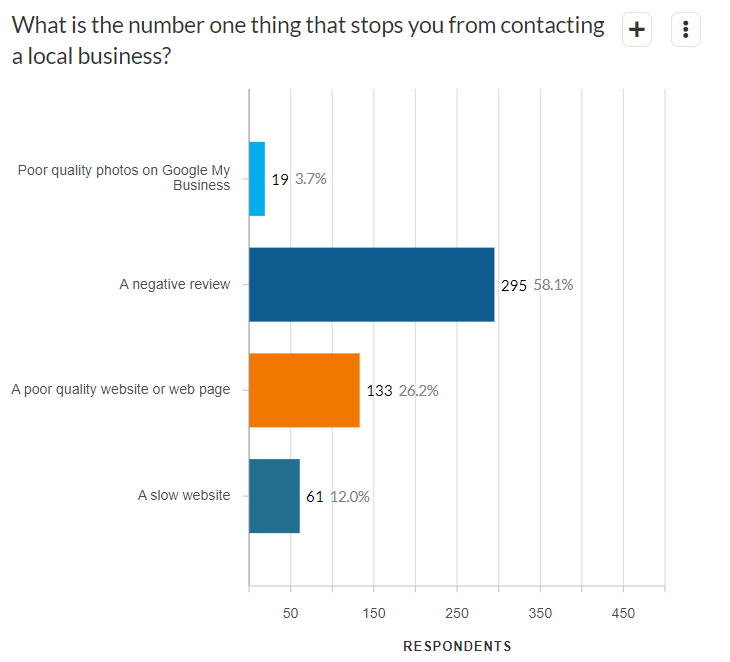
Most would be willing to drive up to 20 miles to visit a local business.
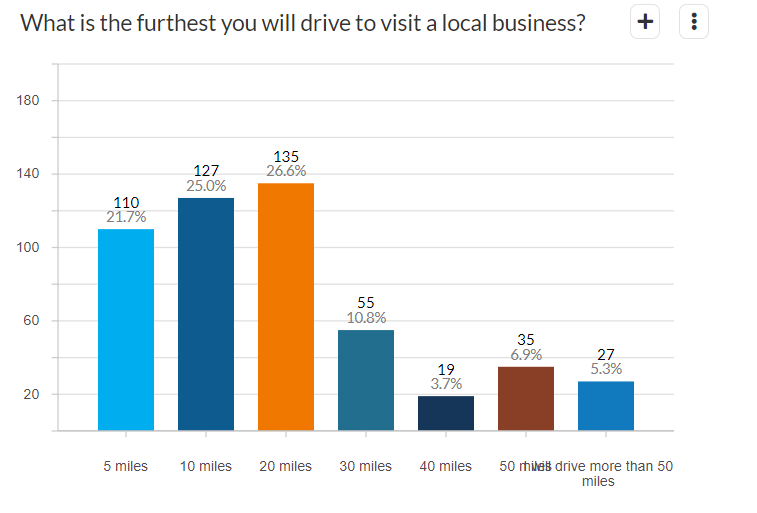
The overwhelming majority (75%) do not visit a local business’s Facebook page.
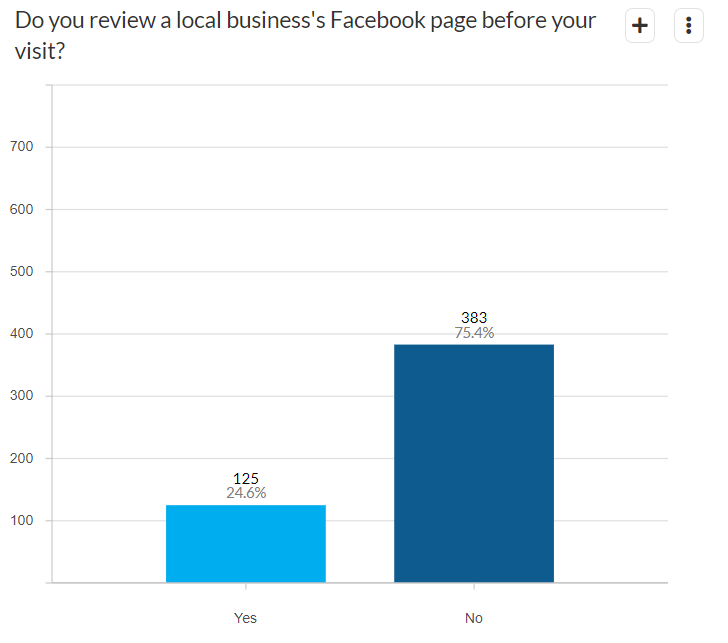
Most (61%) prefer to call a local business, while 22% prefer email, 10% prefer communication through Facebook, 3% prefer to text, and just 2% and 1% prefer to communicate through Yelp or Instagram respectively.
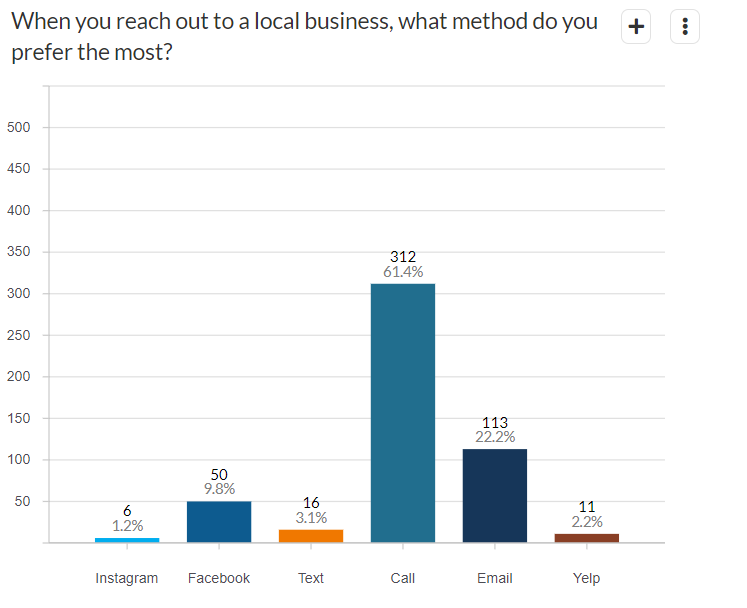
Surprisingly, when asked if they would message a business directly through Google My Business, 73% said they would prefer another method such as call, text, or email.
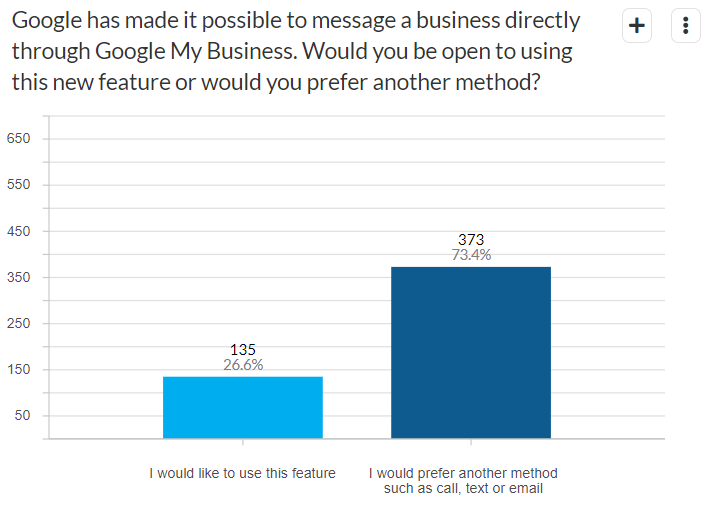
Demographic Breakdown:
Gender:
- 53.5% – female
- 46.5% – male

Age:
- 1.85% – 18 to 24
- .06% – 25 to 35
- 1% – 35 to 44
- 3.7% – 45 to 54
- 33.5% – 55 to 64
- 59.4% – 65+

Location:
- 25.4% – midwest
- 14.2% – northeast
- 35% – south
- 21.3% – west

Summary of Findings:
A digital presence is definitely necessary in today’s marketing strategy, but traditional means of communication still hold strong.
Some answers were unsurprising; yes, reviews matter. And yes, a high-quality website is crucial to bringing customers in the door.
Others, however, we didn’t quite see coming.
For example, even with the rise of Yelp, TripAdvisor, and a myriad of other local review sites, many still rely on old standbys like Yahoo when it comes to finding information on local businesses – which emphasizes just how important it is to make sure you’ve claimed and updated your listings across the board, not just doubled-down on Google My Business.
Also surprising is that despite the rise of visual media and AI-powered communication, most still look to the basics when researching a business. Desktop searches still outperform mobile when it comes to local, so make sure you’re accounting for design and user experiences across all devices.
When it comes down to actually purchasing big-ticket items from a business, people still love desktop and that is probably going to take a long time to change.
Similarly, a business’s description carries more weight than quality photos and videos. And to top it off, most users aren’t turning to chatbots or text communication; they still prefer a phone call or email over newer communication methods.
This is, when you think about it, good news. It means that people still want to connect to actual people, not bots, and that though other people’s opinions via reviews do matter, you still have control over the experience through a solid description and online presence. While we all like the idea and ease of appointment booking automation, don’t underestimate the effect of a friendly, knowledgeable service rep.
And, despite the importance placed on positive reviews, it appears that most people do not want to tarnish a business’s reputation or take the time to build them up. If a business wants reviews, it really needs to have a review generation strategy in place.
As far as social media, Facebook is not the place people where most turn for local information. Although they have a similar profile to a channel like Yelp, it lacks the same level of moderation from the site and trust from the consumer. That may change over time, but right now the 74% margin that don’t rely on Facebook for local information signifies a very large part of the customer pool.
When it comes to Glassdoor, we are seeing that customers don’t check the site. This shows that searcher’s primary concern isn’t what employees think about the company. Rather, they care more about the service. This is good news for business owners who may have accrued some bad reviews on the platform. However, businesses that considered employee reviews a substantial means for customer acquisition may need to rethink their strategy.
Overall, the study shows that local consumers:
- Still love the computer
- Use Google as their primary search engine
- Leave most of their reviews on Google and Yelp
- Trust major review sites more than niche
- Don’t care much about Glassdoor
- Care deeply about a good business description on Google
- Check multiple review sites before making a purchase
Consumers want to be able to verify a business is doing great work in multiple areas and contact them however they want. Often, that means traditional phone or email, not through AI and bots. Business owners should invest the most in Yelp and Google and make sure their websites still look polished on desktop.
